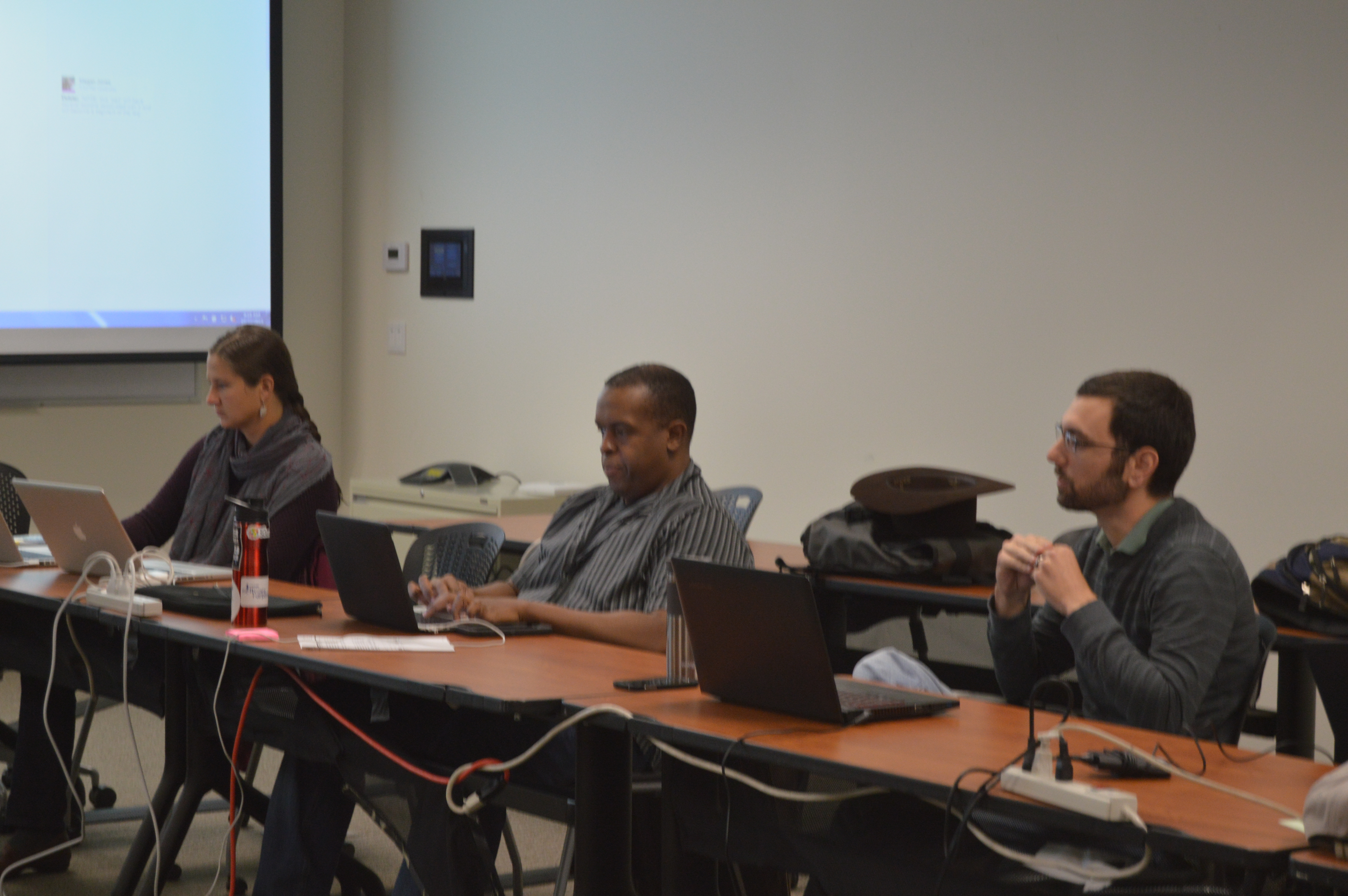I think I can - Self-Efficacy and the Carpentry Learner
This post originally appeared on the Data Carpentry website
The Little Engine that Could had it absolutely right. Thinking you can is one of the best ways to succeed at a host of activities ranging from public speaking and bungee jumping to cooking a souffle and learning R. What the Little Engine didn’t know, however, is that this concept of “thinking I can” is actually a theory known as self-efficacy, and plays a major role in how we approach our goals.
Self-efficacy is simply our belief in our ability to accomplish a task. That task can be anything you can imagine:
- Riding a bike
- Doing visualizations in R
- Singing karaoke
- Starting and populating a repository
No matter the task, awareness of your self-efficacy relates to your achievement.
I’ll be transparent. In my first Optimization class session in graduate school I looked around the room and thought to myself, “I don’t belong here.” I had no friends or colleagues in the course, and none of the other students looked like me. I didn’t even know anyone at the university who had taken (and passed) this course. My anxiety about the course content was stronger than my will to see the course through to finish. Lastly, I had never seen the material before, or anything like it for that matter. Needless to say I dropped the course immediately.
What would have happened had I been aware of how my self-efficacy for completing the Optimization course linked to my success? Let’s examine what happened in the classroom that day.
First:
I looked around the room and thought to myself, “I don’t belong here.” I had no friends or colleagues in the course, and none of the other students looked like me.
In self-efficacy research this refers to social persuasions, or simply, encouragement from another person. Having that friend or colleague next to you encouraging you may seem insignificant, but it could be a major factor in whether you achieve a task.
Second:
I didn’t even know anyone at the university who had taken (and passed) this course.
This is referred to as vicarious experiences, or “if she can do it, so can I.” How many times have you pushed yourself to complete a task solely because you saw someone else do it?
Third:
My anxiety about the course content was stronger than my will to see the course through to finish.
Physiological factors like sweating, butterflies in your stomach, and fatigue certainly affect whether or not you complete a task. Recognizing these factors and being able to overcome them gets you that much closer to completing the task.
Finally:
I had never seen the material before, or anything like it for that matter.
Mastery, or enactive attainment, is probably the most important factor that determines your self-efficacy. Completing a task time and time again (i.e. if becoming a “master”), raises your self-efficacy; failure lowers it.
So what does this mean for the carpentry learner and how we (should) structure our workshops? Here are a few thoughts and recommendations, and my hope is that you’ll comment below and give us more.
- Encourage learners to invite a friend to join them in the workshop. We all could use a little social persuasion every now and then.
- Encourage learners to network with community members, instructors, or other individuals who have already completed a carpentry workshop. “If they did it, I think I can!”
- Encourage learners to use “break time” to get up, stretch, gripe about deleting their repo, whatever! Ridding themselves of anxiety will get them closer to completing the workshop headache free.
- Encourage learners to attend follow-up sessions and practice, practice, PRACTICE! Who doesn’t want to be a master?
The moral of the story is this: If you think you can, you should, and you will. Choo choo!
[I dare you to share this post.]
